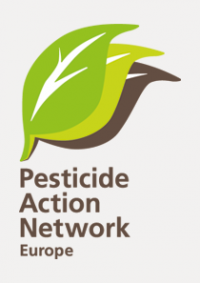Briefings
PAN Europe’s feedback to the call for evidence on Water Resilience Strategy
PAN Europe welcomes the European Commission’s initiative for a European Water Resilience Strategy (EWRS). Pesticide residues and especially the TFA contamination of our drinking water from PFAS pesticides is of great concern to all of us. Water should be at the centre of EU policy and we ask for urgent actions to address water challenges. The discussions on the Water Framework Directive (WFD) highlight -once again- the urgency of the situation. See our recommendations.
Position Paper: Strengthening EU Guidance on negligible exposure to pesticides
The EU pesticide regulation does not allow substances that are proven to be carcinogens, reprotoxic substances, and endocrine disruptors. However, the regulation provides a theoretical exception if exposure is ‘negligible’. This means that their use in pesticide products should lead to no human contact and non-detectable residues in food.
Implementation of the outcome of the Strategic Dialogue on Agriculture requires ambitious policy action to reduce pesticides
Recommendations for the EU Vision for Agriculture and Food
The EU Vision for Agriculture and Food should prioritise policy action to ambitiously reduce pesticides. Reducing pesticide use and risk is a key objective of the Green Deal. Reducing pesticide use and risk is essential to apply and implement the political principles and recommendations of the outcome of the Strategic Dialogue on EU Agriculture (SDA). The SDA report explicitly underlines the need to reduce pesticides.
Flemish pesticides plan protects pesticides, not nature or health
The Flemish government approved a new pesticide plan last week, but it falls fundamentally short. While pesticides are harmful to biodiversity and public health, it lacks effective measures. The precautionary principle, European directives and scientific recommendations are ignored. Who actually benefits from this plan?
TFA: The ‘Forever Chemical’ in European Mineral Waters
NGO recommendations for trilogue negotiations on the Soil Monitoring Law
Healthy soils are essential for life, providing the foundation for 95% of the food we eat. They filter and store water, help plants grow and are critical to the long-term resilience and stability of farmer’s livelihoods, especially in the face of increasing extreme weather events. Currently, over 60% of soils are undergoing degradation processes.
NGOs recommendations for revised lists of priority substances for surface and groundwater
Aquatic ecosystems are home to a wide range of species and are vital for society and economic activities, yet they are under immense pressure from anthropogenic impact. More than 20 years after agreeing on the EU’s main water law, the Water Framework Directive, only one-third of Europe’s surface water bodies are in good chemical status. While the reported status of groundwater is slightly better, large regional differences reflect varied levels of monitoring efforts among Member States.
PAN Europe’s feedback on Commission’s public consultation: European Food Safety Authority - evaluation of performance 2017-2024
PAN Europe highlights that EFSA being strictly independent as an EU scientific agency is crucial for decisions on protecting health and the environment from pesticides. Known risks from synthetic pesticides include cancer, endocrine disruption and neurodegenerative diseases, even at low doses. In 2009, the EU enacted Regulation (EC) 1107/2009 to prevent exposure to harmful pesticides and protect the environment.
Residues of EU-banned pesticides in EU food: What the law really says about double standards
The EU Pesticide Regulation (1107/2009) is, in theory, one of the strictest regulations in the world. To guarantee a high level of protection, it requires that pesticides and their residues have no harmful effects on human health and animal health and no unacceptable effects on the environment. While many potentially harmful pesticides are still on the EU market, others got banned from the EU food production thanks to this strict regulation’s requirement.
Toxic Harvest: Ban PFAS pesticides
While it is now notorious that PFAS are used in diverse consumer products (such as frying pans, textiles, food packaging etc), it is less well known that PFAS pesticides are intentionally sprayed on food crops. Yet, food is a systematic and direct route of exposure to PFAS pesticides for citizens. 37 pesticide active substances approved in the European Union are PFAS according to EU regulators. Some are persistent themselves and others break down into persistent metabolites, such as trifluoroacetic acid (TFA).
